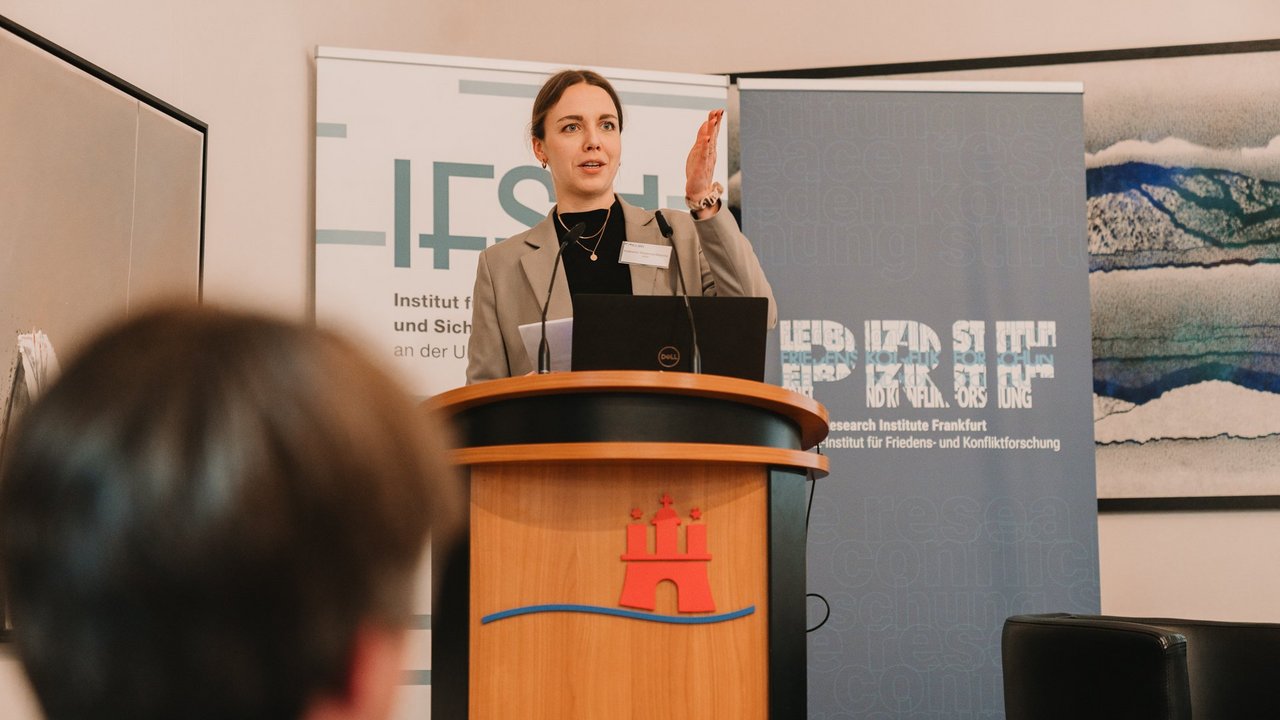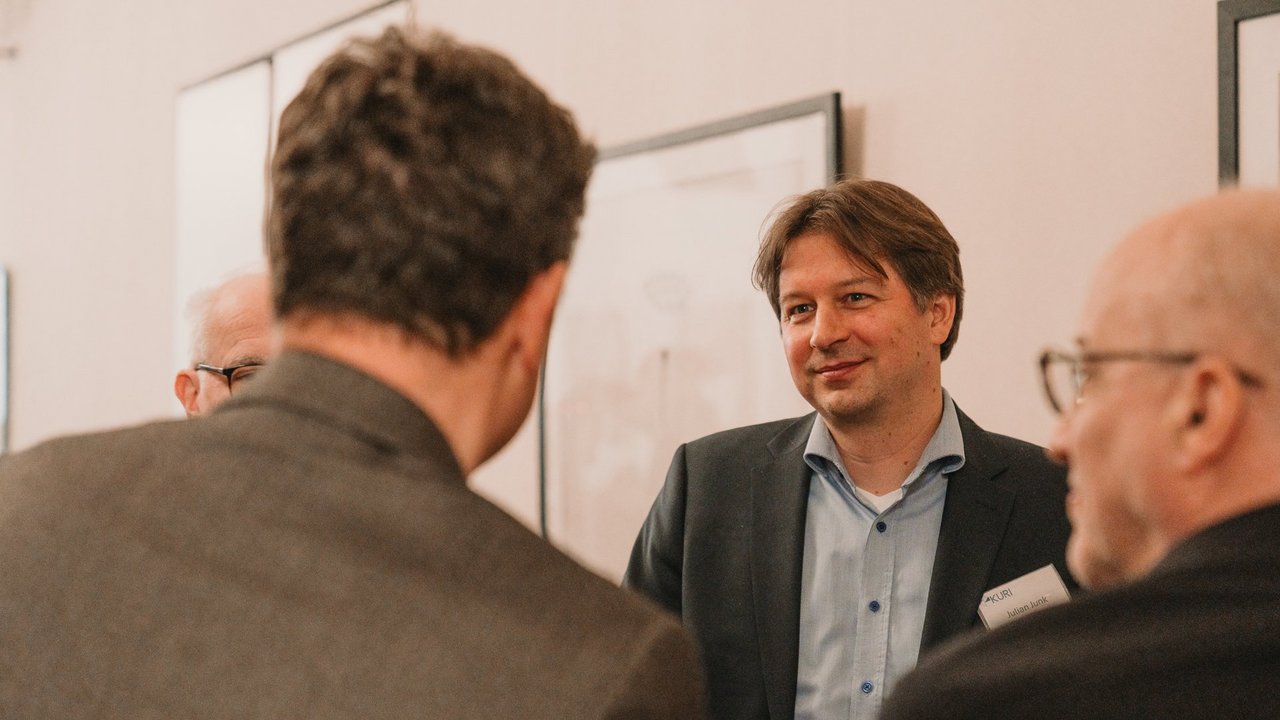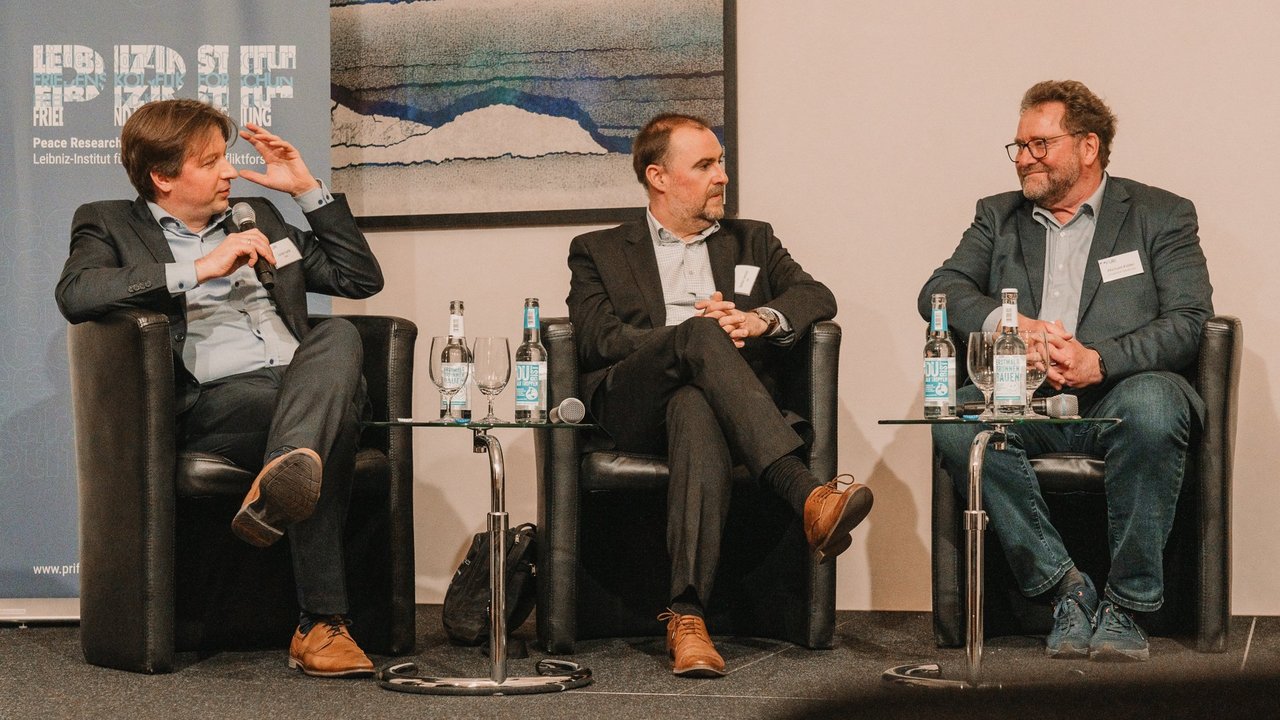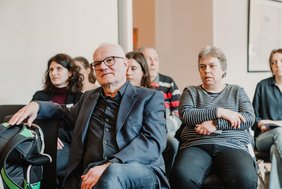On 10 March 2025, the closing event of the research project Configurations of Social and Political Practices in Dealing with Radical Islam (KURI) took place at the State Representation of the Free and Hanseatic City of Hamburg in Berlin.
The joint project, which was coordinated by IFSH researcher PD Dr Martin Kahl and Prof. Dr. Julian Junk, Leibniz Institute for Peace and Conflict Research (PRIF) / Hessian University of Applied Sciences for Public Management and Security (HöMS), examined what governmental and civil society measures were taken in Germany after the terrorist attacks of 9/11. The project lasted for four years. The political field of action is characterized by a multitude of actors whose interests, perceptions of problems, coordination mechanisms, and solution strategies are very different. One basic idea behind the project was to identify the overarching tendencies and underlying logics in dealing with Islamism, despite these fragmentations, conflicting interests, and political struggles for dominance.
KURI was funded by the Federal Ministry of Education and Research (BMBF). The ministry aimed to gain a deeper understanding of the societal causes and impacts of the increasing Islamism in Germany and Europe.
What are the perspectives of the public, security authorities, and politics regarding the threat?
In an initial discussion panel, the focus was on how the public, security authorities, and politics perceive and portray Islamism in Germany. Mona Klöckner from PRIF presented the results of her surveys on threat perceptions by the public at the beginning of the panel. Lea Brost (IFSH) and Lea Scheu (PRIF) followed with a presentation on threat perceptions by politics and security authorities. Another discussion panel focused on the question of which legal provisions and practical measures both the state and civil society institutions have taken in response to Islamist attacks and threats. Isabelle Stephanblome (PRIF) explained the development of the legal framework for dealing with Islamism in an introductory lecture. Martin Kahl (IFSH) and Julian Junk (PRIF/HöMS) outlined the developments in operational measures taken by state and civil society actors against Islamism in another presentation. The final panel discussed current challenges and opportunities in dealing with Islamism, particularly with a view to the upcoming legislative period. Participants in the panel moderated by Julian Junk were Michael Kiefer, University of Osnabrück; Götz Nordbruch from ufuq.de and Stefa Uecker, the head of Division H III 1 – Resilient Democracy and Extremism Prevention at the at the Federal Ministry of the Interior and for Home Affairs.
The panel discussion was followed by a reception.
A collection of the project results, edited by Julian Junk and Martin Kahl, will be published by Campus-Verlag in May 2025 under the title ‘Wie Deutschland mit Islamismus umgeht’.
Further information on the project and its publications can be found on the project website.



